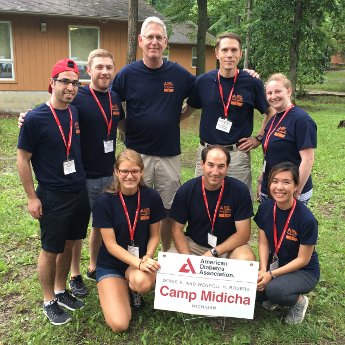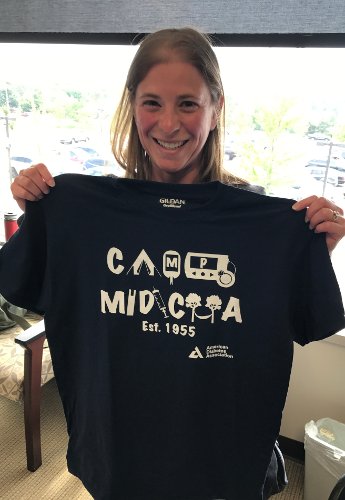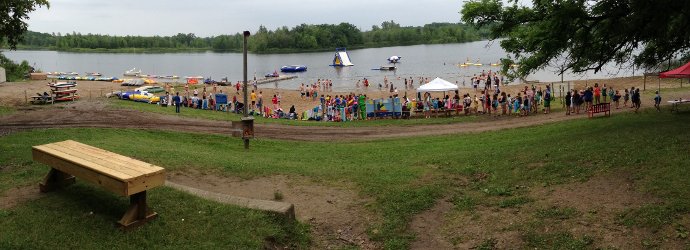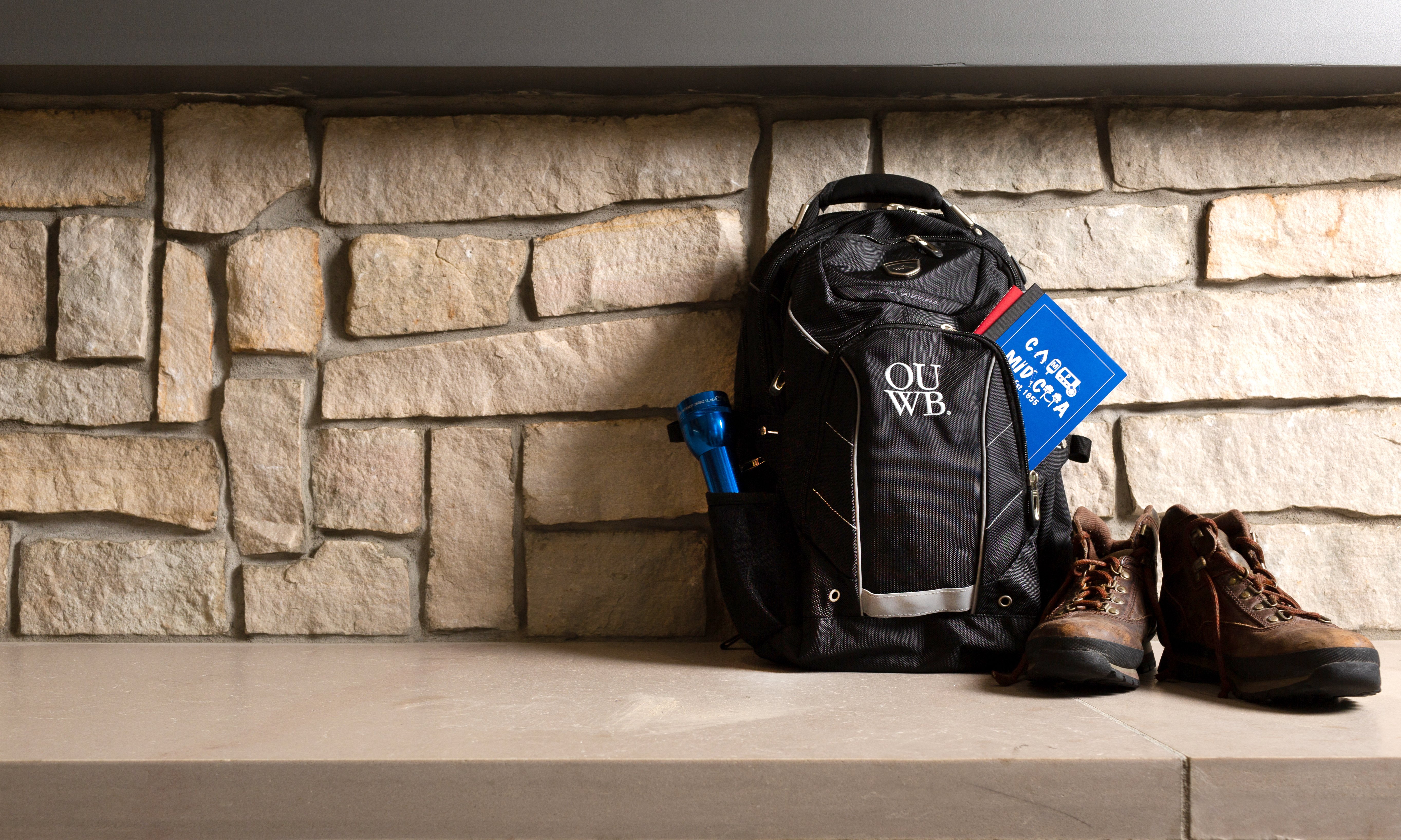Summer camps make for lifelong memories of new friends, swimming, horseback riding, archery and campfire songs – and Camp Midicha is no exception, although it serves another important purpose.
The American Diabetes Association (ADA) Camp Midicha is a place that encourages hundreds of diabetic campers (ages 5-18) to achieve effective, independent daily management of their diabetes.
 During the two one-week sessions of overnight camp, a caring community of medical professionals, medical student volunteers, trained counselors and certified dieticians ensure campers have an enjoyable, educational and safe time.
During the two one-week sessions of overnight camp, a caring community of medical professionals, medical student volunteers, trained counselors and certified dieticians ensure campers have an enjoyable, educational and safe time.
For the Oakland University William Beaumont School of Medicine (OUWB) students, involvement with the camp began with David Tobin, OUWB ’17, and Julia Orlovskaia, OUWB ’17 (both who have Type 1 diabetes),
volunteered at Camp Midicha in 2013, and suggested opening this rewarding opportunity to other students. Endocrinologist and OUWB associate professor, Dr. Lowell Schmeltz, thus began collaborating with Camp Midicha’s medical director, Dr. Bern Degnan. And, with preceptorship assistance from Professor Virginia Uhley, OUWB endocrinology course director, the medical school’s volunteer summer preceptorship program was established.
As part of the preceptorship each June, OUWB students spend two weeks rotating within adult and pediatric endocrinology offices, familiarizing themselves with Type 1 diabetes management, various insulins, and diabetes technology (such as insulin pumps and continuous blood sugar monitors) in preparation for the camp. 
“As volunteers of Camp Midicha medical staff, OUWB students oversee diabetes management for 8-10 campers under the supervision of an endocrinologist, assisting in administering insulin at meals, taking shifts in the infirmary, and staffing other camp activities,” explains Schmeltz, now chairman for Camp Midicha and a member of the National ADA Youth Strategies Committee.
But the benefits of camp reach far beyond standard hands-on training, as Schmeltz witnesses OUWB students blossoming into confident practitioners.
“I’ve seen medical students have their first patient interactions and deliver their first injections,” Schmeltz says. “To witness the two-week transformation from timid students to confident medical staff is extremely rewarding.”
One of those students, Marty Randall, is a fourth-year medical student who’s volunteered at the camp for three summers.
“Camp Midicha is probably the most formative experience of my medical school career,” says Randall. “After my first year at camp, I was hooked. Now, I’m applying for a residency in pediatrics.”
Medical students are required to complete a faculty-approved academic/research project related to diabetes or the camp and present at an OUWB Research Symposium. Randall’s research project revolved around camper swim time, comparing campers who disconnected their (non-waterproof) insulin pumps to campers who stayed connected with a waterproof pump, or campers who used insulin shots. Findings showed that, on average, campers who disconnected had a greater increase in their blood glucose levels, highlighting increasing choices in daily management.
 Randall most enjoys seeing campers reach new goals in self-care, with encouragement from peers who share their challenges.
Randall most enjoys seeing campers reach new goals in self-care, with encouragement from peers who share their challenges.
“Four kids in my cabin had never given themselves insulin shots, and by the end of the week, they were,” Randall proudly says. “While other campers became proficient in counting carbohydrates.”
Camp Midicha seems to be a place nobody outgrows.
“There’s something special about this camp that just grabs you and doesn’t let go,” Randall says. “As I continue my medical training, I hope to keep coming back.”



 November 20, 2019
November 20, 2019 By Mary Gunderson-Switzer
By Mary Gunderson-Switzer
